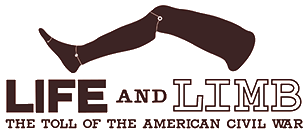
About the Module
Author:
Peter S. Carmichael is the Fluhrer Professor of History and the Director of the Civil War Institute at Gettysburg College. After completing his doctorate at Penn State University under Dr. Gary W. Gallagher, Professor Carmichael went on to teach at Western Carolina University, the University of North Carolina at Greensboro, and West Virginia University. He is the author and editor of four books, including The Last Generation: Young Virginians in Peace, War, and Reunion, which was published by the University of North Carolina Press in 2005. He has also published a number of articles for both scholarly and popular journals, and he speaks frequently to general and scholarly audiences. Every June Professor Carmichael directs the Civil War Institute’s Summer conference, which draws more than 300 attendees from across the country. More recently Professor Carmichael has appeared on the PBS Robert E. Lee documentary for The American Experience series and his lectures have been covered by C-Span. He is currently finishing a book entitled The War for the Common Soldier.
Suggested Use:
Instructors interested in the ways that historical actors draw from and react against a dominant cultural system will find this module useful. War compels individuals to confront and often question dominant and long held assumptions about society. How soldiers came to terms with the butchery of war while trying to retain a sense of connection to a civilian world of people and values that were deeply treasured gets to important issues related to the fields of public history, gender studies, military history, cultural studies, and history of medicine.
Objectives:
At the conclusion of a unit or an entire module, students are expected to:
- Understand how soldiers were simultaneously entrapped and inspired by the dominant sentimental culture of the day.
- Analyze the ways that soldiers made meaning of their military experiences and the struggles in conveying their conflicted feelings back home.
- Explain the broad response to cowardice from civilians, soldiers, and the army’s medical establishment.
- Analyze the relationship between post-Civil War memories and the ways that Civil War parks interpret organized violence.


